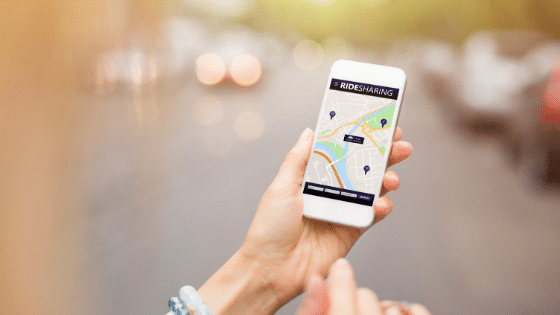What You Need to Know About Ridesharing Accidents in the State of Florida
Ridesharing services, like Uber and Lyft, have quickly become some of the most popular ways for people to get to their destinations and are often used for getting to the airport or getting home after a night out on the town. While these services are convenient, there are several risks that can be associated with them that passengers should be aware of. The biggest concerns are what is a passenger supposed to do if they’re involved in a ridesharing accident while using a one of these services, the insurance claim process, and if the service itself can avoid responsibility for any injuries sustained by the passenger.
What to Do If You’ve Been Involved in an Accident
If you’ve been involved in an accident with a rideshare driver, either as a passenger or the other driver, you need to take the following steps:
- Contact the police immediately so that a formal report can be filed. Only give factual statements and do not lay blame on anyone, even if you believe the rideshare driver was at fault.
- Seek medical attention immediately even if you do not feel like you’ve been injured. Many times, victims of car accidents do not feel their injuries until hours or days after the injury has occurred.
- Take photos if you are capable of doing so. You’ll want to take photos of both vehicles and any damage they’ve incurred. You’ll also want to take photos of your injuries before treatment. It can also be helpful to take photos of the location where the accident happened, and to make note of the time of day and road conditions.
- DO NOT sign anything you do not agree with or understand, and don’t speak with any company representative without a lawyer’s counsel.
Florida Insurance Laws and Statutes
As a no-fault state, Florida requires all motorists to carry a minimum of $10,000 of Personal Injury Protection (PIP) insurance and $10,000 in Property Damage Liability insurance (PDL). This is because as a no-fault state, if a driver is an accident their insurance will cover up to a certain amount for any injuries, vehicle damages, and lost wages no matter who was at fault for the accident.
As of July 1, 2017, however, legislation was passed in the state that requires rideshare drivers to carry a minimum of $1 million in liability coverage for property damage, injury and death in addition to the minimum PIP insurance already required. They are also required to have a minimum of $50,000 in physical injury or death liability coverage whenever the driver has the app in use to look for a customer, even if they aren’t actively driving a passenger. Fortunately for many rideshare drivers, some companies will provide insurance policies for their drivers. Companies such as Uber include insurance that matches Florida state laws. They also provide a $1 million insurance policy for liability to any third party because of an accident and offer insurance to their drivers should they be the involved in an accident with an uninsured or underinsured motorist. If the driver has a passenger, or is on the way to get a passenger, then the $1 million policy applies. If the driver is looking for a passenger, the lower insurance maximums would apply.
If You’re the Driver of a Rideshare Vehicle
If you are driving for Uber or Lyft and are involved in an accident, your policy is guaranteed to protect you anytime you have a passenger or are in transit to pick up a passenger. If you’re looking for a passenger on their app, what the company’s insurance policy covers may be lower.
If you’re driving your vehicle for personal use, with no passenger, not in route to pick up a passenger, and not logged in and actively seeking a passenger, behave as if the company’s insurance policy does not exist and reference your own personal insurance policy to make a claim.
If You’re the Passenger of a Rideshare Vehicle
If you’re the passenger of a rideshare vehicle that is involved in an accident where the other driver was at fault, you would seek to recover damages from that driver. You can go through a third-party to make that claim against their insurance or pursue a personal injury lawsuit.
If the rideshare driver was at fault for the accident, you can look directly to their insurance policy. The $1 million policy in place for those instances should cover the expenses of any injuries that you may have incurred as a result of the accident.
Ridesharing is a relatively new concept, and the laws in place can be confusing. If you’re looking to pursue a personal injury lawsuit to recover damages that are the result of a ridesharing accident, don’t go it alone. Reach out to The Armour Law Group, Orlando personal injury attorneys, immediately following the accident. We can help you get the compensation you deserve.


Recent Comments